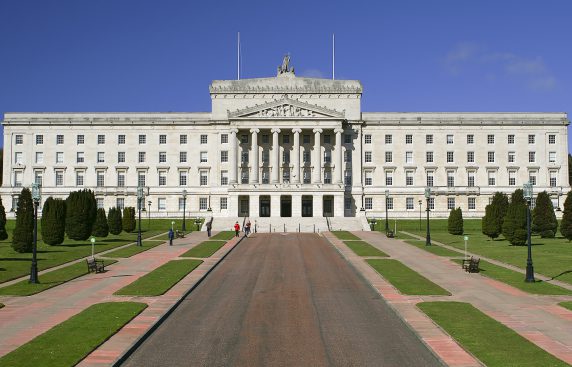Nearly 100% of Northern Irish GPs vote to reject Government’s contract offer

Northern Irish GPs have overwhelmingly rejected the Department of Health’s offer for the 2025/26 GMS contract, the BMA has revealed following a referendum of the profession.
The union said that 99.6% of GPs (1,375) who took part in the referendum voted in favour of rejecting the £9.5m offer, which contained an additional £1m into core funding, £5m for indemnity and £3.5m expected to cover National Insurance hikes.
GPs were also asked as part of the vote if they were willing to take collective action ‘if a better offer was not presented’, and 89% of respondents ‘indicated that they would be willing to do this’, the BMA said.
The referendum was launched after contract negotiations between the BMA and the Department ‘stalled’ last month, and was open to GPs and GP registrars from across Northern Ireland.
In the negotiations BMA was asking for the Department to agree a 1% uplift in the core GP contract, full indemnity for all GPs and full cost recovery for the increase in National Insurance contributions.
BMA Northern Ireland GP committee chair Dr Frances O’Hagan said that the result is ‘extremely clear’, showing that GPs in Northern Ireland do not think this offer ‘is enough to stabilise or save general practice’.
She said: ‘In our negotiations we asked the Department for a credible financial investment in general practice, one that will help stabilise the service, keep GPs in post and stem the tide of contract handbacks which means more practices in every town in Northern Ireland could be at risk of closing, but the Department have not listened.
‘The £5m offered for indemnity will not fully cover the costs GPs incur and which they propose to restrict to GP partners only, and a contribution to the increased national insurance costs may not be enough to cover the actual cost to GPs.
‘We now need the Minister and the Department to come back to the negotiating table with a credible offer. Therefore I have written to the Minister today to seek an urgent meeting with him so we can work together on a solution.’
Alongside the offer the Department have issued GPs with ‘a set of access proposals’ but that none of these will create ‘a single extra appointment’ for patients, she said.
She added: ‘What they will create is more bureaucracy for GP surgeries, taking staff away from dealing directly with patient queries.
‘We had agreed to work with the Department on access, to try and get a better understanding on what data they have on perceived access issues, but they refused to agree to work collaboratively with us to co-produce a set of proposals that might actually help GPs and patients.
‘GPs are as if not more frustrated as patients with the level of access we can provide with the current funding – additional funding into core general practice will allow practices to hire more staff including more GPs and this will provide more access.’
Health minister Mike Nesbitt said that the offer included £9.5m ‘additional funding’ and that it ‘remains on the table’.
He said: ‘I am disappointed the BMA GP negotiators recommended this outcome to their members and have to respectfully ask what this will achieve.
‘I have met with BMA GP representatives on the 2025/26 contract and underlined the budgetary realities that I currently face this year. In short, there is a projected half billion pound plus shortfall between available monies and financial requirements across health and social care services.
‘Despite these challenges, a package of £9.5m additional funding is on offer to GPs. While I am determined to invest in and expand primary care going forward, this package is at the absolute limit of what is achievable this year. The package remains on the table.
‘The package includes funding to address the long standing issue of GP indemnity, as well as support in relation to increased National Insurance costs.
‘It also includes £1m for measures that would make a contribution to addressing the public’s very real concerns about access to GP services.’
In November last year, NI LMCs voted in favour of demanding an increase in funding for general practice to a ‘minimum’ of 10% of the health budget – up from 5.4% currently.
Portfolio careers
What is the right portfolio career for you?












